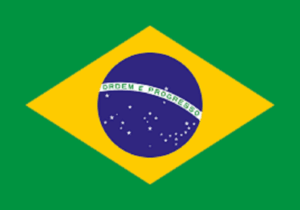The Volokh Conspiracy
Mostly law professors | Sometimes contrarian | Often libertarian | Always independent
Major Orange Juice Importer Files Lawsuit Challenging Trump's Planned Brazil Tariffs
The case raises many of the same issues as our case against Trump's "Liberation Day" tariffs.

A major orange juice importer has filed a lawsuit in the US Court of International Trade challenging Trump's planned imposition of 50% tariffs on imports from Brazil:
A U.S.-based juice company is suing over President Trump's pledge to impose a steep 50 percent tariff on Brazilian imports starting next month.
Johanna Foods Inc., a major importer of orange juice, filed a lawsuit on Friday in the U.S. Court of International Trade in New York, saying that the measure, announced in a July 9 letter from Mr. Trump to President Luiz Inácio Lula da Silva of Brazil, threatened to upend its business and sharply drive up prices for American consumers.
Mr. Trump has used tariffs aggressively to shape trade policy. In justifying the tariff on Brazil, he cited factors including what he called an unfair trade relationship and a "witch hunt" trial against Brazil's former right-wing president, Jair Bolsonaro, a close ally.
Johanna Foods' complaint argues that such factors do not meet the legal threshold for invoking the International Emergency Economic Powers Act of 1977, which gives the president broad authority to regulate international economic transactions during a declared national emergency.
"There is no unusual or extraordinary threat," the company said in the complaint, pointing to the lack of a formal executive order or declaration of national emergency. The complaint also said that the letter to Mr. Lula did not constitute an executive order.
The complaint said the tariffs would increase Johanna Foods' annual import costs by $68 million and lead to retail price hikes of up to 25 percent. Johanna Beverage Co., a related company based in Washington State, is also listed as a plaintiff.
Orange juice prices are already high. In June, the price of frozen orange juice concentrate was 5.5 percent higher than in June 2024, according to the U.S. Bureau of Labor Statistics.
Brazil, the world's largest exporter of orange juice, supplies well over half of the fresh orange juice consumed in the United States, according to Agriculture Department figures. Brazil is also a major exporter of coffee to the United States.
The Johanna Foods complaint is available here. It raises many of the same issues as the lawsuit against Trump's "Liberation Day" tariffs, filed by the Liberty Justice Center and myself, on behalf of five small businesses harmed by this massive trade war. A unanimous ruling in our favor by the US Court of International Trade concluded that IEEPA "does not authorize the President to impose unbounded tariffs" and that such "an unlimited delegation of tariff authority would constitute an improper abdication of legislative power to another branch of government." The case (consolidated with a similar lawsuit filed by 12 state governments) is now on appeal before the US Court of Appeals for the Federal Circuit, with oral argument scheduled July 31 (see here for the appellate briefs of the parties, and here for the many amicus briefs supporting us, filed by groups on different sides of the political spectrum).
Like us, Johanna Foods argues that IEEPA does not authorize trade-deficit related tariffs, that there is no "emergency" and "unusual and extraordinary threat" of the sort required to utilize IEEPA, and that unconstrained presidential tariff authority would violate constitutional limits on delegation of legislative power to the executive. Their initial complaint does not make the argument that IEEPA doesn't authorize tariffs at all, or raise the major questions doctrine (which requires Congress to "speak clearly" when delegating to the executive the power make "decisions of vast economic and political significance"). But perhaps they will add these points in later filings.
In a previous post on the Brazil tariffs, I outlined how they highlight the egregious nature of the Administration's position even more than Trump's other IEEPA tariffs do:
The Brazil situation exemplifies why Trump's use of IEEPA is illegal and harmful. Brazil's prosecution of Bolsonaro is pretty obviously not an "emergency" or an "unusual and extraordinary threat" to the US economy or national security. Both of these conditions are required to invoke IEEPA. This situation just underscores the danger of allowing the president to define those terms however he wants, without any judicial review, as the administration claims he can.
The ostensible rationale for the Liberation Day tariffs is trade deficits, despite the fact that such deficits are not an "emergency," not at all "extraordinary" or "unusual," or even a threat at all. On these points, see the excellent amicus brief in our case filed by leading economists across the political spectrum.
The Brazil tariffs are even more indefensible than Trump's other IEEPA tariffs. In addition to the Bolsonaro prosecution, Trump's letter announcing the new tariffs cites that country's supposedly unfair trade policies. But the US actually has a substantial trade surplus with Brazil, of some $7.4 billion per year, according to the office of the US Trade Representative. In combination with Brazil's retaliatory tariffs, Trump's massive new tariffs against that country will predictably harm consumers and businesses in both countries, for little if any gain.
If the president can use IEEPA to impose tariffs for completely ridiculous reasons like these, he can use it to impose them against any nation for any reason. That reinforces our argument that the administration's interpretation of IEEPA leads to a boundless and unconstitutional delegation of legislative power to the executive.


Show Comments (16)